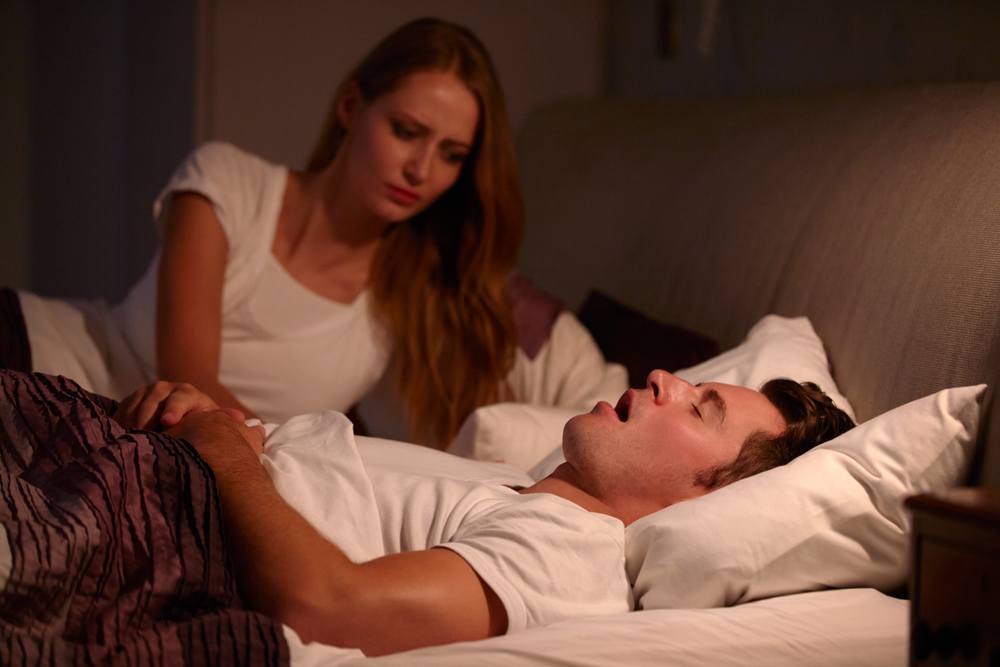Sleep Apnea: What Is It and What Are the Symptoms?

Sleep apnea isn’t just a lot of snoring. It’s a very misunderstood condition that could affect your mood, your cognitive abilities, and your overall quality of life. That’s why our Monroeville, PA, dental practice takes obstructive sleep apnea (OSA) seriously. We can screen you to determine the potential risk for sleep apnea and provide insight into your treatment options.
Below, we’ll look at some of the basic facts about sleep apnea and how we can help you overcome this problem.
Understanding Sleep Apnea: The Basics
Sleep apnea is a condition in which a person’s normal breathing stops during sleep. Each interruption in breathing is called an apnea.
These apneas can occur throughout the night, making it difficult to get a full and restful night of sleep.
Types of Sleep Apnea
There are three types of sleep apnea:
- Obstructive Sleep Apnea (OSA) - The most common kind of sleep apnea, obstructive sleep apnea is caused by physical blockage of the airway during sleep.
- Central Sleep Apnea (CSA) - Central sleep apnea is when your brain does not send proper signals to the muscles that control breathing, resulting in apneas during sleep.
- Complex Sleep Apnea - Also known as treatment-emergent central sleep apnea, complex sleep apnea involves a combination of OSA and CSA.
The Symptoms of Sleep Apnea
Some of the most common signs of sleep apnea include the following:
- Loud snoring
- Gasping for air while sleeping
- Waking up multiple times at night
- Dry mouth in the morning
- Sore throat in the morning
- Headache upon waking
- Daytime drowsiness
- Problems with attention span
- Irritability and mood swings
Your partner may notice some of these symptoms while you are asleep.
Sleep Apnea Risk Factors
Common risk factors for developing sleep apnea include:
- Being Overweight - People who are overweight or obese are more likely to have airway obstructions during sleep.
- Smoking - Smokers are much more likely to develop sleep apnea than non-smokers.
- Being a Male - Men are up to 3 times more likely to experience sleep apnea than women.
- Advanced Age - Older adults tend to experience sleep apnea more than younger individuals.
- Certain Medical Conditions - Sleep apnea tends to be more common in people with asthma, type 2 diabetes, hypertension, polycystic ovary syndrome (PCOS), and hormone disorders.
- Use of Alcohol or Sedatives - Drinking alcoholic beverages or using tranquilizers can relax the throat muscles, contributing to OSA.
- Family History of Sleep Apnea - Physical attributes and medical issues that contribute to obstructive sleep apnea tend to be genetically inherited.
Why You Should Get Sleep Apnea Treated
If left untreated, sleep apnea can lead to a number of physical health and mental health issues. This is because people with sleep apnea are unable to get a good night’s rest multiple nights in a row. This takes a toll on the body and can result in low energy throughout the day and even bouts of depression.
How We Can Help People With Sleep Apnea
Dr. Edward Narcisi of the Center for Dental Excellence has been awarded Diplomate status by the American Academy of Dental Sleep Medicine. This makes our Monroeville dentistry practice unique regionally as one of the few offices that can help diagnose and treat sleep apnea.
We partner with local sleep physicians who can assess your situation. Our practice can also create an oral appliance that improves breathing during the night to help address OSA.
Request a Consultation Today
Need to speak with a professional about sleep apnea? We’re here to help. To request a consultation and get the help you need, contact our office in Monroeville.


